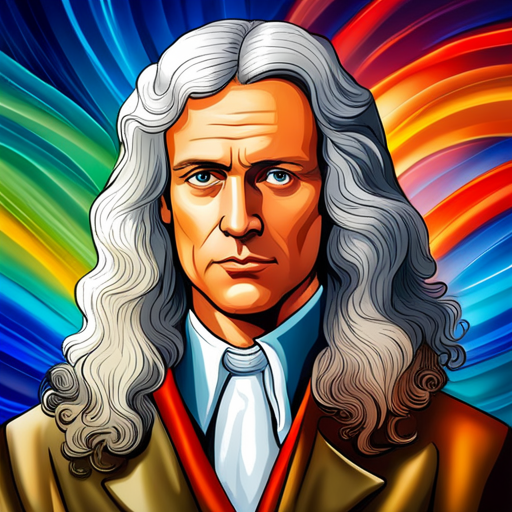Autobiography of Isaac Newton
Early Life
I, Sir Isaac Newton, was born on the day of Christmas in the year 1642 in Woolsthorpe-by-Colsterworth, a hamlet in the county of Lincolnshire. I was delivered into a world devoid of my father, who had tragically perished three months prior. I was christened with his name as a memento of his legacy. As a young boy, I was primarily raised by my grandmother due to my mother’s hasty remarriage and subsequent relocation. This was a challenging time that stirred up a brew of resentment within me, but it also nurtured my introverted and contemplative nature.
Schooling and Early Education
In pursuit of education, I was first enrolled at the King’s School in Grantham. My early years at school were not marked by academic excellence. Instead, I found fascination in a variety of pursuits. I delighted in the crafting of sundials, model windmills, kites, and even a miniature mill powered by a mouse. In spite of my introverted nature, a fracas with a schoolyard bully led me to the top of my class, sparking a newfound determination for academic achievement.
A brief interruption in my schooling occurred when my mother, now widowed a second time, recalled me to Woolsthorpe to manage our family’s farm. The tasks did not align well with my intellectual inclinations, and it wasn’t long before I returned to school.
Upon matriculating in 1661, I was admitted to Trinity College, Cambridge, where my true intellectual journey began. I was initially a subsizar—a student who performed menial tasks in return for room and board. I worked my way up, and by 1664, I was selected as a scholar, earning a four-year degree.
Discoveries and Works
The Plague of 1665 forced the University to close, leading me to return to Woolsthorpe. This period, termed my “annus mirabilis” or “year of wonders,” saw me making significant strides in the fields of calculus, optics, and gravitation.
One day, as I sat in my garden, the falling of an apple led me to question why it fell straight down and not sideways. This thought culminated in my universal law of gravitation, fundamentally altering our understanding of the cosmos.
During this time, I also developed my theories on calculus—a mathematical tool to quantify the changing world, introducing notions of ‘fluxions’ and ‘fluents’, the ancestors of what we now know as derivatives and integrals.
I made significant contributions to the field of optics as well, investigating the dispersion of light, which ultimately led me to build the first functional reflecting telescope.
Cambridge Professor and Publication of Principia
Upon my return to Cambridge in 1667, I was elected a fellow of Trinity, and two years later, I was appointed Lucasian Professor of Mathematics. I began formulating my laws of motion, which became the foundation of classical mechanics.
My early work caught the attention of astronomer Edmond Halley, who encouraged me to publish my findings. This encouragement resulted in my monumental work “Philosophiæ Naturalis Principia Mathematica,” published in 1687. In this work, I described universal gravitation and the three laws of motion, which remain at the heart of our understanding of physics.
Life in London and Later Years
In 1696, I moved to London to assume the position of warden of the Royal Mint. I took to this role with surprising zeal, leading a campaign to recall old currency and issue a more reliable, milled coinage. I was knighted by Queen Anne in 1705, an honour not for my scientific exploits but for my service at the Mint.
My later years were tinged with disputes, notably with Gottfried Leibniz over the invention of calculus, and with Robert Hooke over my theories of light and gravitation. I wasn’t immune to controversy, but my theories withstood the test of criticism and time.
I withdrew from public life in the early 1720s. My health began to fail, and I passed away in my sleep on March 20, 1727. I was interred in Westminster Abbey, a resting place befitting my contributions.
Legacy
The sum of my life is perhaps best encapsulated in a remark I once made to Halley: “If I have seen further it is by standing on the shoulders of Giants.” I was fortunate to exist in a world burgeoning with scientific inquiry, and I was privileged to add to its wealth of knowledge. I am Isaac Newton, a seeker of truth in the world of unknowns, a symbol of intellectual pursuit, and a beacon guiding the quest for scientific understanding.
Isaac Newton Books and Audio Books on Amazon.
Show more +
